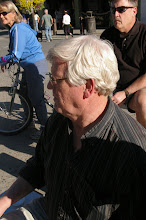Glossolalia, speaking in tongues, is often debated for what it is or isn’t--whether it is an authentic manifestation of the Holy Spirit in the Christian’s life or bogus religious mumbo-jumbo. Rarely is it looked at for what it does for the believer. A pilot study done by Timothy Arthur Jones in partial fulfillment of a Masters Degree in Psychology at the University of Idaho, looked at the brainwave activity of Christians who prayed in tongues.
The experiment measured the electrical activity of both sides of the brain while the Christians were resting, then praying in tongues, then resting.
The study looked at three different types of brainwaves: alpha, beta, and theta.
In simple terms, alpha brain waves are found during periods of relaxation with eyes closed, but still in awake state. They are thought to represent the activity of the brain in an idle state. Beta rhythm are associated with normal waking consciousness (above 12 Hz). They are associated with active, busy, or anxious thinking and active concentration. Theta rhythms are normally absent in healthy awake adults. Theta waves are normally present in adults just before sleep, what is referred to as the twilight state: between consciousness and sleep. It is associated with increased creativity, stress reduction, learning enhancement, and an awakening of intuition and other extrasensory perception skills.
Findings: The most interesting finding was that a significant increase in theta waves was found during the prayer period.
Interpretation:The study suggests that the Christian that prays in an other tongues has the opportunity to fulfill what is being referred to in I Corinthians 14:4: that is, to build himself up, to find answers that require original and creative thinking.
“He that speaks in an unknown tongue edifies himself.” (I Corinthians 14:4).
ed·i·fy:
1) to instruct or improve spiritually...
2) archaic a: build b: establish
to instruct and improve especially in moral and religious knowledge : uplift ; also : enlighten , inform
So the real question about speaking in tongues is not whether it is a known language or not or whether it is for the modern day Christian, but rather, can it have benefit to the believer today and in if so, how? This study opens some thought provoking possibilities that should be addressed further.
Subscribe to:
Post Comments (Atom)

No comments:
Post a Comment